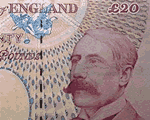 Go to main content
Go to main content
Archive Website of the UK government
Please note that this website has a UK government accesskeys system.
Main menu
Page menu
Home and community

HomeBuy Direct - paying back the equity loan

An equity loan helps you to buy a new home through HomeBuy Direct. This loan is paid back when you sell your home or after 25 years. This guide explains how to pay back the equity loan and what happens if you want to pay back the loan early.
HomeBuy Direct equity loan scheme
When you buy a new home through HomeBuy Direct, you buy it with help from an equity loan. This loan covers up to 30 per cent of your home's purchase price.
The equity loan is provided by the government and the house builder.
An equity loan is always paid back as a percentage of what your home is worth. This means the amount you owe will rise and fall with the value of your home.
For example, if you got an equity loan towards 30 per cent of your home’s purchase price, you would owe £30,000 if your home was worth £100,000.
Paying back your equity loan early - staircasing
After five years you will start paying fees on the equity loan. The more your equity loan is worth, the more you will pay in fees.
You can use the link below to find out the cost of these fees.
If you pay back the loan early, you will pay less in fees and get more money when you sell your home. This is known as ‘staircasing’.
If you pay back the whole equity loan within five years, you won't pay any fees.
How staircasing works
Once you’ve owned your home for 12 months, you can pay back part or all of the equity loan. When you pay back the equity loan, you increase your share of the equity (value) of your home.
You must pay back at least 10 per cent of the value of your home. You will need to pay for a survey of your home to find out how much it is worth.
You will also usually need to pay a solicitor or conveyancer to update the legal documents for your home.
If you want to pay back all or part of your loan, you should contact Metropolitan Home Ownership. Metropolitan Home Ownership is the National HomeBuy agent that deals with repayments of equity loans.
| Example of staircasing | Value | Percentage |
|---|---|---|
| Original purchase price of home | £200,000 | |
| Your mortgage and cash deposit | £140,000 | 70 per cent |
| Equity loan | £60,000 | 30 per cent |
In this example, if the home’s value increased to £210,000, the cost of paying back 10 per cent would be £21,000.
This would increase your share of the home’s value to 80 per cent (£168,000). The amount owed on the equity loan would drop to 20 per cent of the home’s value (£42,000).
Mortgage costs and staircasing
If you borrow more money to pay back the equity loan early, your monthly mortgage payments will rise.
You will also pay more interest on the money you have borrowed. Interest is the fee that your bank or building society charges for lending you money. It is worked out as a percentage of the total amount you have borrowed.
Your solicitor can advise you on these costs before you borrow more money.
Selling your HomeBuy Direct home
When you sell your home, the National HomeBuy agent has to approve the sale.
The money that the buyer pays for your home is first used to pay off your mortgage, then the equity loan.
If your home has dropped in value, there may not be enough money left after your mortgage costs to pay back the equity loan.
If this happens, you won’t have to pay back the rest of the money owed on the equity loan.
| Example of selling your home | Value | Percentage |
|---|---|---|
|
Original purchase price of home |
£190,000 |
|
| Your mortgage and cash deposit | £133,000 | 70 per cent |
| Equity loan | £57,000 | 30 per cent |
| Sale price of home | £195,000 | |
| Your share of the sale price | £136,500 | 70 per cent |
| Equity loan |
£58,500 | 30 per cent |
Paying back the equity loan if you don't sell your home
If you don't sell your home, you will need to pay back the equity loan after 25 years. You may need to take out a mortgage to cover the cost of the loan.
You will also need to pay for:
- a survey of your home to say how much the equity loan is worth
- a solicitor to remove the equity loan from the legal documents for your home
The National HomeBuy agent will contact you before the end of the 25 years to arrange payment of the equity loan.
 Facebook
Facebook Twitter
Twitter StumbleUpon
StumbleUpon Delicious
Delicious Reddit
Reddit